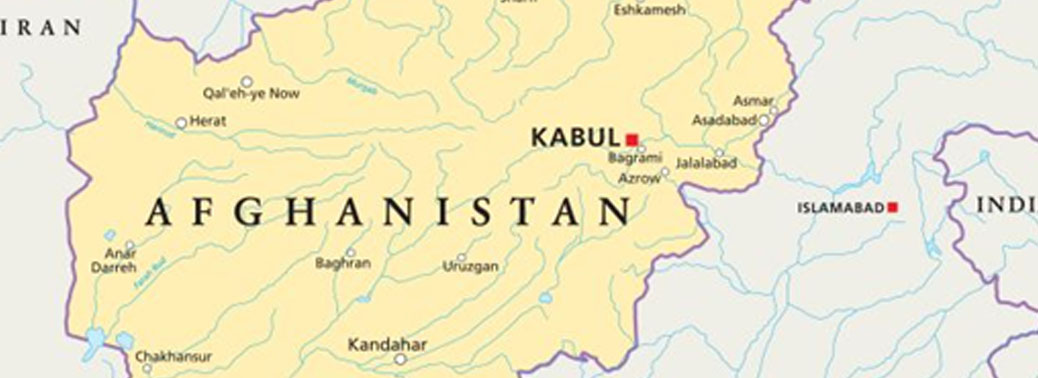USA-TALIBAN PEACE DEAL
03, Mar 2020

Prelims level : International – India and its Neighbour.
Mains level : GS-II Bilateral, regional and Global Groupings and Agreements Involving India and/or affecting India’s Interests.
Why in News?
- The United States has signed a historic deal with Taliban insurgents that could pave the way for ending the 18-year-war in Afghanistan.
- The deal was signed in Doha (Qatar) and thus termed as Doha Agreement.
Background Info:
Post 2001 Scenario:
- The war in Afghanistan was launched by the US in 2001 after the 9/11 attack. The US-led coalition aimed to overthrow the Taliban.
- However, the war in Afghanistan got derailed as the U.S. shifted focus and resources towards Iraq from 2003 onwards.
- The end objective of a stable and peaceful Afghanistan began to recede as the Taliban launched their insurgency in 2005 after they had recovered, regrouped and refinanced themselves from their sanctuary in Pakistan. Since then, the insurgency has gathered momentum and also exposed the U.S.A’s policy weaknesses.
2. Efforts of Barack Obama:
- After taking over in 2009, President Barack Obama authorised a surge in U.S. troop presence with the objective to gain a decisive victory over the insurgency. He simultaneously announced the drawdown of forces would commence in 2011, and by 2014 the Afghan security forces would take charge of all combat operations.
- However, this only encouraged the Taliban insurgency and exposed the shortcomings of the Afghan army and the police forces, in terms of numbers, training and equipment to deal with the post 2014 situation.
- In 2014, the U.S. announced the withdrawal of the bulk of soldiers but a few thousand U.S. soldiers were to stay behind to “advise, train and assist” the Afghan security forces under Operation Resolute Support.
3. Strategy of Donald Trump:
- In 2017, the U.S. President Donald Trump laid out a strategy for “Afghanistan and South Asia”.
- His policy was different from those of his predecessors as it stated that American involvement in Afghanistan was “not for nation building” but was limited to “killing terrorists.”
- He called this policy “Principled Realism” – with a shift from a time-based approach to one based on conditions. This policy was based on two pillars:
- Military Involvement:The additional troops which would serve two roles: counterterrorism missions and training the Afghan forces.
- Political Involvement:A negotiated political settlement with the Taliban, if the situation moves in that direction.
- Since October 2018, Taliban representatives and US officials have been meeting to chalk out a peace treaty.
Highlights of the Deal:
- Comprehensive Ceasefire between the Afghan Government and Taliban.
- Timeline for the withdrawal of all foreign forces from Afghanistan will be carried out, provided the Taliban adhere to their security guarantees and ceasefire.
- The prevention of the use of Afghanistan by any group or individual against the security of the United States and its allies.
- The facilitation of an intra-Afghan dialogue.
- In turn, the Taliban has demanded the release of fighters from Afghan-run jails.
- The agreement also set out a course for the next 14 months.
India’s Stand about this Deal:
- India has been always supportive of the inclusive peace process, specifically Afghan-owned, Afghan-led and Afghan-controlled.
- The participation of the Afghan government’s delegation during the Doha agreement as well as the upcoming intra-Afghan peace negotiations would be following the path desired by India.
- The deal has reiterated India’s commitment to Afghanistan’s pursuit of “sustainable peace and reconciliation”. Thus, India has accepted the Doha Agreement (2020).
Possible Issues for India:
1. Security of India:
- The deal mentions about prevention of the use of Afghanistan by any group against the security of the United States and its allies. However, it is unclear whether India, which is not a U.S. ally, is included in this clause, and whether Pakistan-backed groups that threaten India, would still operate in Afghanistan.
2. Benefit for Pakistan:
- The deal also promises to take Taliban leaders off the UN Security Council’s sanctions list, which could considerably bring down the number of terrorists harboured by Pakistan. This might benefit Pakistan during the June 2020 FATF Plenary.
3. Threat of Sidelining of Intra-Afghan Dialogue:
- The U.S. has committed to clear five bases and withdrawal of troops and it intends to submit to the Taliban-led government. Thus, priority to future Taliban led government may sideline the “Intra-Afghan” dialogue and India’s support for the election process for leadership in Afghanistan.







